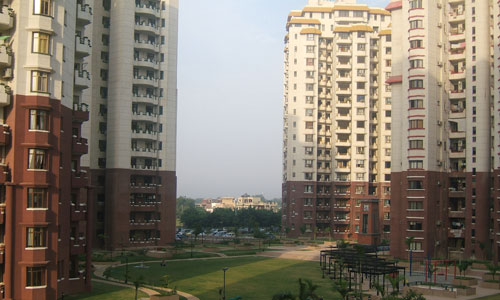By: Ravi Sinha
Track2Realty Exclusive
 The festival of Diwali has a direct bearing on the property market, and irrespective of the overall macro economic scenario the property transactions around this time of the year have been the maximum. However, this Diwali has been different for reasons more than one—first of all there was a very confused trend forecast in the realty sector both for the realtors as well as the buyers; secondly, this was perhaps the first time that the realtors were not sure whether to dispose off their inventories or hold, and finally those who don’t have holding capacity wanted to make the most of Diwali festive spirit and hence worked overtime with out-of-box strategies.
The festival of Diwali has a direct bearing on the property market, and irrespective of the overall macro economic scenario the property transactions around this time of the year have been the maximum. However, this Diwali has been different for reasons more than one—first of all there was a very confused trend forecast in the realty sector both for the realtors as well as the buyers; secondly, this was perhaps the first time that the realtors were not sure whether to dispose off their inventories or hold, and finally those who don’t have holding capacity wanted to make the most of Diwali festive spirit and hence worked overtime with out-of-box strategies.
It would be understatement to say the festive season looked a bit subdued for property buyers this year. Anuj Puri, Chairman of JLL India believes the price corrections that were anticipated in the primary cities have not materialized, at least not in the hoped-for magnitude. This has put many fence-sitting buyers who were hoping for the combined benefit of reduced rates and Diwali discounts in an uncomfortable position.
“The last quarter of the calendar year is typically the most active one in Indian real estate. During this quarter, many NRIs visiting India also buy residential properties for self-use or as investments. This is the period that developers have their eyes fixed on. Builders who have not yet relented on their pricing will probably continue with their hard stance in anticipation of the increased demand,” says Puri.
Anuj Puri’s advice is that residential property buyers should not count on hard discounts – or discounts on the actual selling price – during the festive season. It is believed that prices may rise again if developers achieve satisfactory sales volumes during the Diwali period. Only if the expected sales volumes do not materialize will builders consider lowering their rates.
Experts believe this is a gamble that real estate investors may consider worth the risk, but it is a highly inadvisable approach for end user buyers. If a property is affordable at this point in time, it makes sense to take the plunge now, while a lot of developers are offering additional freebies.
However, it seems the mood in the market remained divided with no definite pattern. While some developers refrained from project launches or even hard sell of their existing inventories, there were others who tried to make hay while the sun shines.
With the proposed Land Acquisition Bill expected in the Winter Session of Parliament, there are developers who preferred to celebrate a quiet Diwali as their inventories will skyrocket post the Bill. After all, the new Bill makes the land acquisition lot more costly. Even some of the big conglomerates like Wadias, Piramals, Godrejs, Lalbhais and Tatas have plans to develop their land bank instead of selling them.
“They have huge tracts of land, so why not,” says Pranay Vakil, Chairman, Knight Frank India, which advises many of these firms. “If they do it properly, it will be a windfall for shareholders who have shown faith in the management for so many years.” Many of these groups are sitting on large land banks acquired when they bought businesses from British companies or as inheritance through generations.
While some are holding their projects, others decided to capitalise upon the feel-good factor the festival generates. Kruti Jain, Director of the Pune-based Kumar Urban Development Ltd (KUL), says: “In India, home-buying has always been a market that has been primarily driven by sentiment and these sentiments are high during the festival season. Navaratra is a very important and popular festival of India. Our records show that this has always been a good season for home-buying and there is 20-30 % increase in transaction during this auspicious period.”
However, selling the property this Diwali has been a lot different, as the traditional discounts and freebies did not attract the home buyers like previous years. A sample survey by Track2Realty, the real estate market tracker, gives some very interesting insights into the home buyers psyche. The survey conducted in four strategic markets of Delhi-NCR, Mumbai, Bangalore and Chennai shows that while as many as 67% want freebies on property purchase during Diwali, the offering by the developers hardly meet their expectations. Nearly eight out of ten, 78 per cent, find offerings like a foreign trip less attractive than the developer adding amenities like AC and other utilities in the apartment.
With buyers getting more discerning, the developers are increasingly being forced to have strategic shift in marketing to make the most of Diwali spirit. Offers like buy back in case of a price crash, 20-80 payment plan where buyers have to pay only 20 per cent and rest 80 per cent after possession only, may seem to be exception at this point of time, but if Diwali 2011 is any indication, the real estate market is definitely heading to a strategic shift. After all, change in the sentiments of market demands a different strategy-some within the box and some outside it. There would have been no better time to test the water than the festive season of Diwali.





